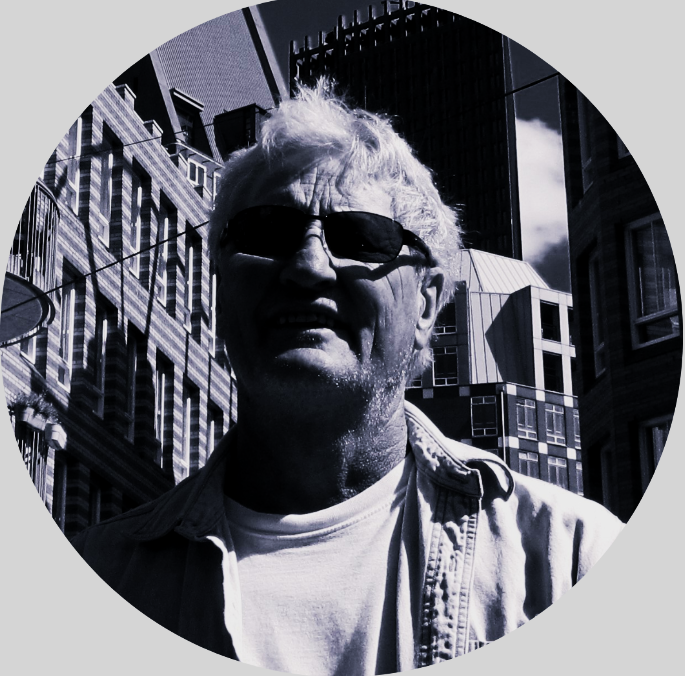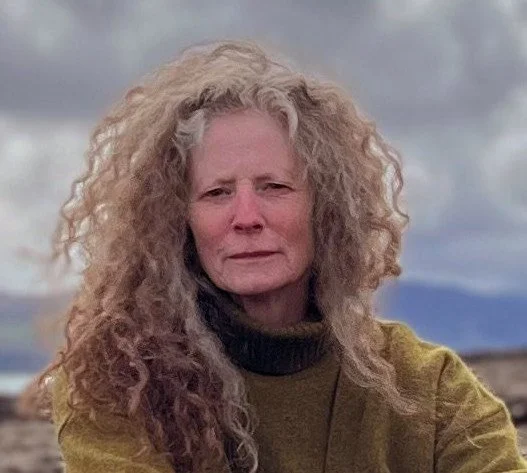The setting for Into the D/ark is a relatively isolated farming community in the early nineteen sixties. With the recent arrival of American network television, the larger world has begun to make its way into the daily lives of the characters living in this insulated folk society.
Power Q & A with Brockton Writers Series
We love live literary events. Festivals, reading series, bookstore book launches: we are just about always game for a good ol’ bibliofest. We also know that many of these events operate by the mercy of grants, volunteers, and long, hard, and often thankless hours. No one who loves books and literature should take these vital initiatives for granted. Not only do authors often depend on them to create more awareness for their work, but our culture depends on them to keep the literary arts vibrant. That’s why we reached out to one of of favourite downtown Toronto reading series, Brockton Writers, and asked them to be a guest this month on our Power Q & A series.
Power Q & A with David Giuliano
This past May, I turned sixty-five. Pearl, my beloved, asked what I wanted for my birthday. When she turned sixty-five, she wanted a party. I booked a local venue and chef, put together a 1970s top-ten playlist, and a birth-to-sixty-five video to the tune of “What I Like About You,” by the Romantics. It was a blast.
Me? I wanted a casket. I had stumbled on the Fiddlehead Casket Kits website. “Build your own pine casket in under 30 minutes with this handcrafted casket kit,” it said, “delivered directly to your door.”
I told Pearl, “I want a casket for my birthday.”
Power Q & A with Brit Griffin
It is maybe odd to only write about where I live — all four of my novels are set in and around Cobalt, and most of my musings & reflections are also generated from this landscape. Odd maybe, but I feel a sense of the imperative to pay attention to the land I inhabit. Scrappy and used up as it is, and still showing the scars of short-lived but hyper-industrial activity, it is a place worth seeing, as in discovering the minutiae, the magic, the vulnerabilities, and the joy, in and of and around this place that I inhabit. It seems to me now obvious, though I wish I had seen it sooner in my life, that any hope we have of being better, of finding a way of being in the world that is non-destructive, lies in seeking atonement from the land we inhabit, its creatures and beings, wherever that happens to find us.
Power Q & A with Ben Zalkind
Satire is tricky. In a free society, it can be a form of entertainment, which confirms for its audience the idiocy and silliness of “that thing we enlightened people are against.” In dicier milieus, such as Putin’s Russia, satire cannot be reckless, lest it disappear. It has to be clever, damning, and opaque enough to cloak its true purpose, which is as a tool of resistance. Making fun of our overlords is serious, political business.
Power Q & A with Stephanie Bolster
The timing of the book’s release was coincidental, though it’s a fortunate coincidence in that Katrina and the subsequent levee breaches that wreaked such devastation in New Orleans are back in the public consciousness and may make readers more interested in the perspective the book offers. Sadly, the inequalities the disaster highlighted are even more acute now than they were then, and the climate change that contributed to the storm has only worsened.
Power Q & A with Sean Minogue
I know I’m hardly the first writer to use my hometown as a setting for a fictional story. I came upon this totally by accident, though. When I set out to “become” a writer in my early twenties, I was trying to latch onto anything except where I grew up. And that’s not because I had negative feelings about Sault Ste. Marie – I just hadn’t processed anything about my experiences there.
Power Q & A with Lorne Daniel
Power Q & A with Guy Elston
To put it simply, because I’m not that interested in myself. Which isn’t true, of course – what poet isn’t obsessed with themselves – but perhaps I'm not that interested in the front-facing, autobiographical concept of ‘Guy Elston’. Memory, identity, the cause and effect of life and its happenings – it’s all a sheer mountain face, senseless. I need an angle, a longer way round.
Power Q & A with Christy Climenhage
I hope that readers will take away the idea that just because we are capable of doing a thing, doesn’t mean we should do the thing. We need to use our own critical thinking and ethical judgement to determine our way forward and make decisions in a complex world. We live in an era of marvels where so much is possible. But just because something is possible doesn’t mean that it serves any kind of public good. We shouldn’t do it just because we can. This applies to genAI, it applies to resurrecting dire wolves (which were not resurrected at all, not really), and it applies to deep-sea mining. And of course, it applies to the central premise of my novel – adapting humans to live in the ocean depths.
Power Q & A with Aamir Hussain
The core inspiration of the story does come from my lived experience of coming from a family of Muslim women who are incredibly accomplished in many different fields and my attempt to reconcile this with the image of my faith in the West of being incredibly misogynistic and oppressive towards women. An image that has been a part of Western culture for hundreds of years but came into prominence as a part of the incessant drumbeats successfully justifying wars against Muslim Majority countries for the past few decades.
Power Q & A with Kevin Andrew Heslop
The work of a good book or a good art or an et cetera is to make it harder to live, to invite the reader to stretch beyond the settled narratives and reduplicative forms to which they’ve become habituated, an injunction ever the more keen in a world so stricken with capitalist call and response, itch and scratch, that the moral obligation to look longer, allow greater complexity to be revealed, and not categorically to encapsulate one’s satisfaction by acquiring the product of an echo is the greater.
Power Q & A with Lucy E.M. Black
This novel began in an antique store when I fell in love with a reproduction poster from May 1874. The splendid horse, young Netherby, was available as a proven foal-getter at $4 a single leap. I was charmed by the poster but also intrigued by the idea of a farmer advertising his horse’s services in this way. I began to wonder about the farmer and gradually Larkin’s story revealed itself and the novel unspooled.
Power Q & A with Daniel Coleman
The 16th and 17th century encounters between Indigenous people in Turtle Island and merchant sailors coming from Europe constitutes the meeting of two very different ways of seeing and living in the world, two very different approaches to trade. The French, Dutch, and English who arrived at the mouths of rivers flowing into the Atlantic were the envoys of a new way of making wealth. These were not aristocrats who stood to inherit their fathers’ land and properties, they were sailors from Europe’s emerging merchant class who were looking for trade goods and resources—spices from Asia, minerals from “El Dorado,” manufactured items from China or India. They had recently developed the capacity to navigate across huge oceans, and they were learning that they could become independently wealthy by exploring the world’s coastlands and islands and bringing back objects they could sell at home.
Power Q & A with Karen Smythe
y novel began as a book about the hidden lives of wealthy retired people living in a fictional small town in Ontario that had transitioned from agricultural to a winery- and tourist-based economy. When one character with a past in wartime Germany emerged, threads opened up that I turned into storylines about the responsibility to remember and be accountable for atrocities in World War 2.
Power Q & A with Connor Lafortune & Lindsay Mayhew
Power Q & A with Allister Thompson
Like a lot of people, when I moved here, I was amazed at the sheer scope of a sparsely populated landscape, as well as its natural beauty, and it really captivated me. It still does. I wanted to share that feeling. Second, given that fact, I felt that while there is a great body of literature about northern Ontario, there can always be room for more!
Power Q & A with Bruce Hunter
Frontenac House Press has published a gorgeous reissue of Bruce Hunter’s award-winning novel of love, disability, and wildness, In the Bear’s House(May 23, 2025.)
Set in 1960s Calgary and Alberta ‘s backcountry, this reissue of In the Bear’s House tells the story of a creative young mother, Clare Dunlop, raising her deaf son against the insurmountable odds of poverty, mental illness and hardship. In the Bear’s House is ultimately about listening to the wild and the wilderness, and what we lose when it’s gone.
We are honoured to have Bruce join us to answer a question about the rebirth of his much-loved story.
Power Q & A with Caitlin Galway
The longer form definitely comes naturally to me, though it’s not something I set out to do, so much as a reflection of how I think. I’ve learned to see my own intuitive approaches more clearly, and how to amplify or deconstruct them, challenge or upend them. Something particular that I’ve realized is that as I write, everything is somewhat of a spiderweb; ideas emerge connected to several other ideas, which connect to one layer, then another, and so on. It’s part of what feeds me electricity as a writer: this instantaneous, sparking interaction between narrative, symbolism, philosophy, psychological and emotional interiority, history, and commentary, and I find that it means the story will probably need more breathing room.
Power Q & A (Part II) with Kathryn Kirkpatrick
Talk about wonder! Paula Meehan's work came to me in the mail as a request for a book review! Poet and editor R.T. Smith certainly kept channels open for synchronicities, and I'll always be grateful for that request. I think currently we're suffering from the Cartesian dualisms inherent in our capitalist version of modernity, and we've got some horrendous fixes floating around. Paula's beautiful work combines a compassionate, progressive politics (for lack of a better word) through a thoroughgoing critique of the class exploitations underwriting modernity as we know it.





















